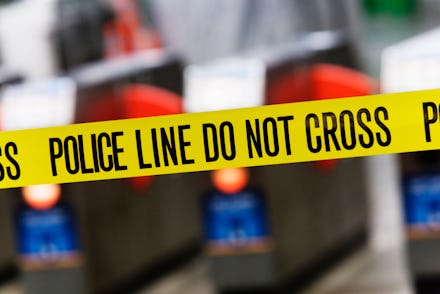There's a Major Crisis Brewing in Chicago – and the Media Has Barely Covered It

The news: It was not a particularly happy Mother's Day weekend in Chicago.
The city's deadly streak of shootings continued this past weekend, killing four and wounding another 22. One of the fatalities was Summer Moore, a 37-year-old single mother of three, who was shot to death at a family gathering on her relative's front porch.
"It's Mother's Day," said Aretha Cummings, Moore's aunt. "To have something like this happen to [her children] is so sad. It's too much violence, too much."
Twenty-six shooting victims might not sound like much in a city of 2.7 million. But considering that gun violence roughly kills 32 people and wounds 140 others every day across all of America, that's a startling statistic — and one that has been barely reported by most mainstream media outlets.
What is going on? Chicago's problem with gang violence is nothing new, but there has been a worrying spike in the past several months. According to the Chicago Tribune, there have already been over 650 shootings since the beginning of 2014. That's a slightly better trajectory than the 2,185 shootings that took place in Chicago last year, but if you look at the month-to-month analysis, April was particularly brutal: during just Easter weekend, there were 45 shootings.
And it looks like May is already on track to catch up. At least three people died and 26 were wounded in the first weekend of May. Just between last Thursday and Friday, there were at least 16 shootings as well. This really shouldn't be considered normal — not even in a city where a few dozen shootings has become a weekly routine.
Image Credit: The Chicago Tribune
Why is this happening? Mayor Rahm Emanuel's administration has put a major focus on decreasing gun violence and has been funneling tens of millions of taxpayer dollars into putting more boots on the ground around the city. Emanuel has also focused on stricter gun legislation and doling out heavier punishments for illegal gun possession.
But this strategy may actually be backfiring. Analysts have pointed out that the imprisonment of the city's top gang leaders has actually created a power vacuum, opening the stage for violent turf battles between competing rivals. By removing criminals without giving thought to potential fallout, these police efforts may in fact be contributing to even more destabilization in certain neighborhoods.
And strengthening gun restrictions — which are already some of the strictest in the country — isn't really working either. Chicago Police Superintendent Garry McCarthy said that cops seized 1,500 illegal guns by late April, but that didn't really make much of a dent in crime. "It's like running on a hamster wheel," he said. "We're drinking from a fire hose, seizing these guns, and people are back out on the street."
The continuing streak of violence indicates that decreasing gun violence is simply not a matter of adding more police officers and taking guns off the street. And until the Emanuel administration addresses this reality, this terrible trend will not go away.